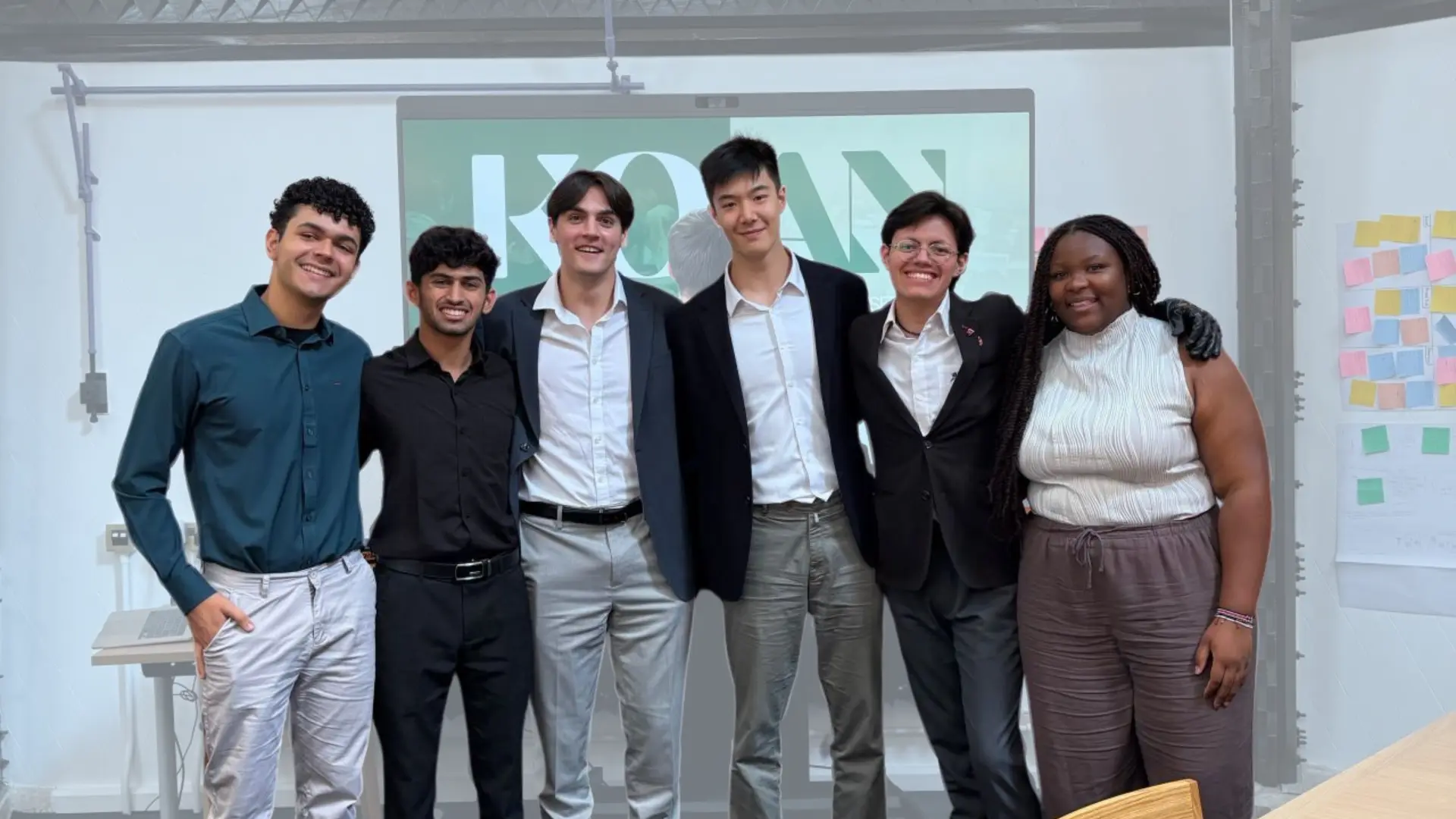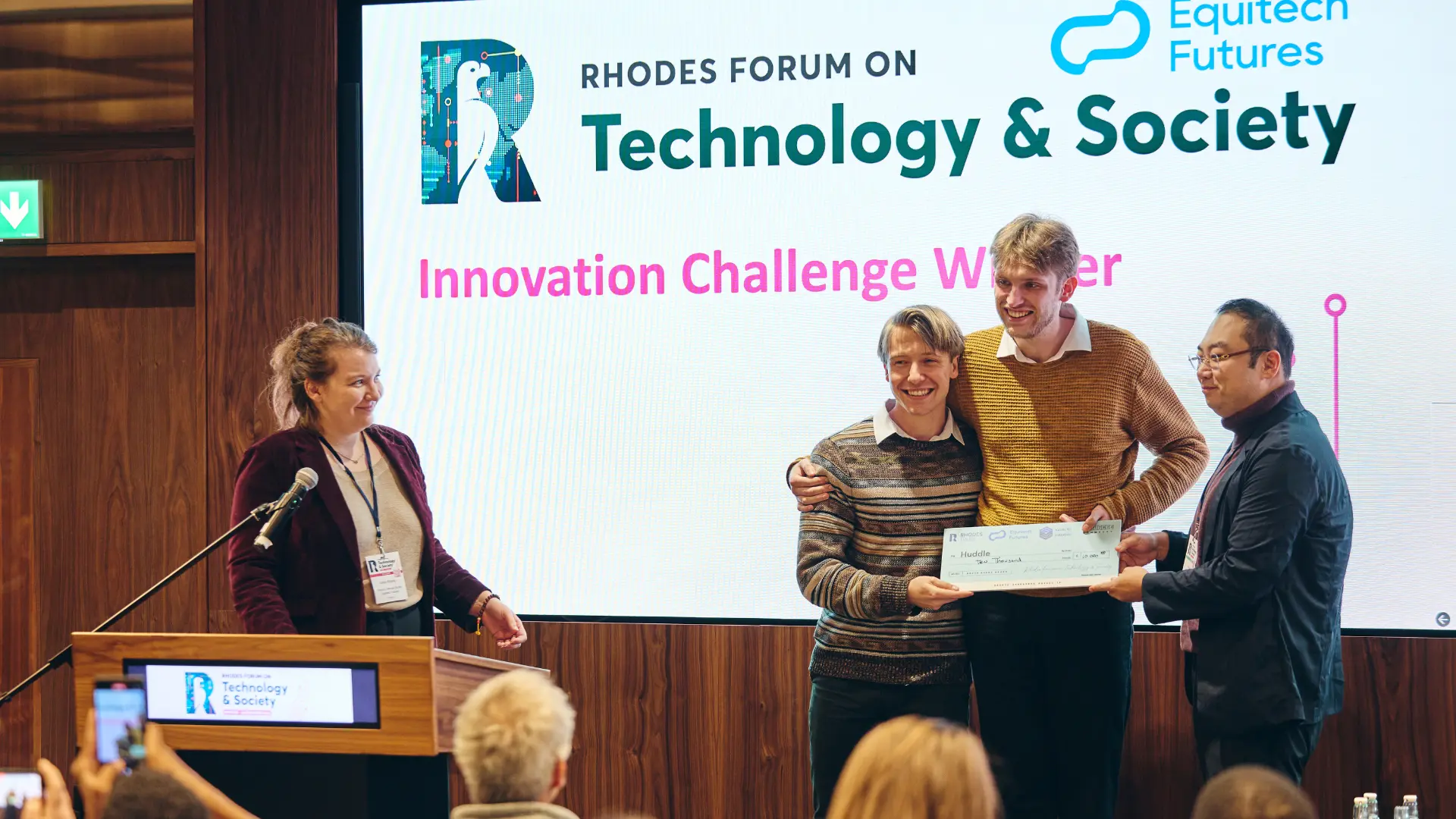.webp)
Newsroom
No Innovator Left Behind: How Equitech Futures uses philanthropic capital to maximize impact
Aug 14, 2022
5 min read
Gift Wilfred Enang, a graduate in public health from the University of Ibadan, Nigeria is keen to pursue a career in healthcare research. She is especially interested in using data science and AI tools to tackle the spread of communicable diseases in West Africa. Currently a data analyst at Quantum Analytics NG, she is an alum of the Equitech Applied Data Institute. Speaking of her experience in the program, she emphasized how financial aid offered by Equitech Futures made it possible for her to explore the intersection of AI and healthcare. “As a woman from Nigeria, the scholarship offered by Equitech Futures helped me attend the Applied Data Institute and explore the application of data science and AI to tackle societal challenges. Without this support, I would not have been able to launch my career in data science.”
Equitech Futures was founded with the mission to discover and launch the next generation of innovators from all backgrounds who want to use technology for social impact. “We want to ensure that no innovator is left behind because of financial constraints,” says Abhilash Mishra, the founder of Equitech Futures. “Our philanthropic partnerships make this possible, and we are lucky to partner with some visionary philanthropists and foundations.”
The Equitech Scholars Program, the flagship 8-week summer course for undergraduates interested in using data science and AI for social impact, is a fully funded opportunity for all scholars selected for the program. Currently in its second year, the program includes Scholars from 19 countries. It also provides a special grant to students in areas with low internet access to facilitate better connectivity. The Applied Data Institute, a separate program for young professionals and graduates is now also offering full tuition waivers for every student, due to generous support from philanthropic partners like the Patrick J. McGovern Foundation.
As with the curriculum and teaching methods at Equitech Futures, our fundraising too is guided by certain principles. Megan MacDonald, head of philanthropic partnerships at Equitech Futures, says that “most fundraising is targeted to partners who share Equitech Futures’ vision of investing in young innovators who want to use technology for the public good.” With our world-class faculty and novel ways of teaching data science at the intersection of social impact, Equitech Futures takes a “problems-first” approach, eschewing traditional disciplinary silos. It is a venture driven by the desire to connect budding innovators from around the world to resources and networks that can help them achieve their ambitions. Our philanthropic partners share this vision.

With grants from the Patrick J. McGovern Foundation, Schmidt Futures, and Rise, Equitech Futures partners with foundations interested in the intersection of technology and social impact. These partnerships help Equitech Futures fund student scholarships for our programs as well as support research residents exploring the applications of AI and data science to problems in education, sustainability, and healthcare.
“Humanity faces many existential threats,” says Kevin Xu, an entrepreneur and philanthropist who is a generous supporter of Equitech Futures. “But a group of thoughtful, daring young innovators can tackle these challenges with the right training, resources, and networks. This is why I’m so excited to support Equitech Futures. I’m confident that with the right support, these alumni will change the world for the better. My philanthropy is about helping them achieve their goals.”

















.webp)




.webp)


.webp)









.webp)
















.webp)

.webp)


.webp)


.webp)






.webp)



